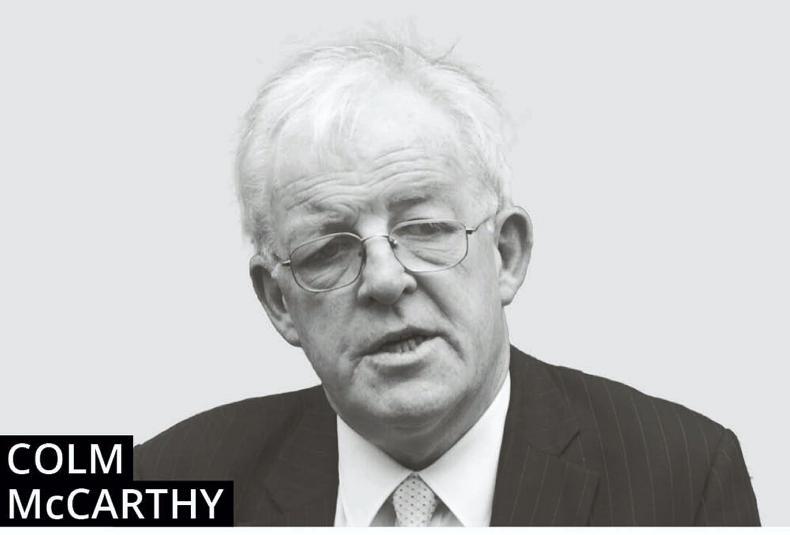Since the appointment of Boris Johnson as UK prime minister seven weeks ago, the central misunderstanding of the Brexit option on the political right has undergone a subtle shift.
The referendum itself, by the very act of posing the binary choice, helped to create the impression that quitting the EU after almost half a century was a simple and straightforward option for Britain.
The public has been treated instead to a continuing political crisis as the complexities have emerged.
Understandably, many people want to “just get it over with” and have been sold a new illusion: that exit will somehow bring the saga to an end, deal or no-deal.
Johnson, surrounded by knowledgeable advisers in the London civil service, has undoubtedly been informed fully about the consequences of a no-deal exit.
The UK would cease immediately its membership in the EU’s internal market, the largest in the world, and would be plunged into negotiations about successor arrangements as a third country.
The logjams encountered in securing parliament’s support for the deal already negotiated would constitute the agenda for new talks with the EU, including the land border in Northern Ireland and the money owed to the EU.
Theresa May’s deal would have delivered breathing space
The UK authorities know this to be the case since it has been explained consistently by Brussels.
The United Kingdom, as well as forfeiting its trading relationship with Europe, would also lose the benefit of Europe’s trade deals with over 70 countries around the world.
Theresa May’s deal would have delivered breathing space, a transition period of two years during which an orderly exit could have been undertaken and new long-term deals initiated. Johnson’s preferred course, a no-deal crash-out, would plunge the UK into an immediate frenzy of complex negotiations from a position of needless weakness. It would not “just get it over with”.
Brexit is not a single unique event which happens on a single day. It is a process of disengagement, economic, political and diplomatic, which will take many years, whatever form it takes.
Even if an alternative government was formed which held another referendum, there is no knowing the result
One of the options theoretically available to the UK is to unilaterally revoke its resignation and to continue in membership as if nothing had happened.
Politically, this could only follow a second referendum, which in turn could only follow a Tory defeat at the general election. The Tories have re-branded as a fully Brexit party under Johnson and will never revoke.
Even if an alternative government was formed which held another referendum, there is no knowing the result. But, most importantly, even a decision to revoke would not restore the UK to good standing as an EU member.
The well has been poisoned and relations between Britain and Europe will be fractious, in or out. There is no way to recreate political tranquillity in the United Kingdom anytime soon.
The role of the news media in the UK debate on Europe was important in creating the pro-Brexit majority at the 2016 referendum. Numerous weaknesses in UK economic performance have for decades been wrongly attributed to EU membership in the pages of the tabloids, notably The Sun and the Daily Mail, Britain’s best-selling daily papers.
No-deal is purveyed daily in the pro-Brexit press as a straightforward choice
The broadsheet Daily Telegraph, once a respected news source, has joined the tabloid chorus in recent years. Since the referendum, these same papers have helped to shift the Brexit delusion to its new manifestation, the insistent calls to just get on with it, the laments that people are bored with Brexit and impatient with dithering politicians.
The broadcast media, notably the dominant BBC, take their lead from the print titles and have given voice to the notion that an effortless exit could be executed if only there was the political will.
No-deal is purveyed daily in the pro-Brexit press as a straightforward choice, as if it would facilitate a return to business as usual, echoing the Nike slogan “just do it”.
Had Theresa May’s deal gone through last March, Britain would now be in the throes of negotiating a long-term deal with the EU-27 as a departed third country
The likelihood of a crash-out has diminished as Johnson’s weakness has become clearer over the last fortnight and he may be forced to seek yet another extension. But the purgatory was set to continue anyway since the form of Brexit is less important than it seems.
Had Theresa May’s deal gone through last March, Britain would now be in the throes of negotiating a long-term deal with the EU-27 as a departed third country, while simultaneously seeking deals with the US, China and the others, in competition with the very same EU.
This would have been difficult even with the two-year transition, two years that would have passed quickly with continuing controversy in the UK and accusations of betrayal from the tabloids as concessions had to be made.
It has been a mistake all along to imagine that Brexit would be simple and the new mistake is to think that closure is achieved with no-deal. There is no quick and easy Brexit.
Read more
Concerns about Brexit doubles among Irish agri-food SMEs
Sterling parity would hit Irish food industry by €0.5bn
Since the appointment of Boris Johnson as UK prime minister seven weeks ago, the central misunderstanding of the Brexit option on the political right has undergone a subtle shift.
The referendum itself, by the very act of posing the binary choice, helped to create the impression that quitting the EU after almost half a century was a simple and straightforward option for Britain.
The public has been treated instead to a continuing political crisis as the complexities have emerged.
Understandably, many people want to “just get it over with” and have been sold a new illusion: that exit will somehow bring the saga to an end, deal or no-deal.
Johnson, surrounded by knowledgeable advisers in the London civil service, has undoubtedly been informed fully about the consequences of a no-deal exit.
The UK would cease immediately its membership in the EU’s internal market, the largest in the world, and would be plunged into negotiations about successor arrangements as a third country.
The logjams encountered in securing parliament’s support for the deal already negotiated would constitute the agenda for new talks with the EU, including the land border in Northern Ireland and the money owed to the EU.
Theresa May’s deal would have delivered breathing space
The UK authorities know this to be the case since it has been explained consistently by Brussels.
The United Kingdom, as well as forfeiting its trading relationship with Europe, would also lose the benefit of Europe’s trade deals with over 70 countries around the world.
Theresa May’s deal would have delivered breathing space, a transition period of two years during which an orderly exit could have been undertaken and new long-term deals initiated. Johnson’s preferred course, a no-deal crash-out, would plunge the UK into an immediate frenzy of complex negotiations from a position of needless weakness. It would not “just get it over with”.
Brexit is not a single unique event which happens on a single day. It is a process of disengagement, economic, political and diplomatic, which will take many years, whatever form it takes.
Even if an alternative government was formed which held another referendum, there is no knowing the result
One of the options theoretically available to the UK is to unilaterally revoke its resignation and to continue in membership as if nothing had happened.
Politically, this could only follow a second referendum, which in turn could only follow a Tory defeat at the general election. The Tories have re-branded as a fully Brexit party under Johnson and will never revoke.
Even if an alternative government was formed which held another referendum, there is no knowing the result. But, most importantly, even a decision to revoke would not restore the UK to good standing as an EU member.
The well has been poisoned and relations between Britain and Europe will be fractious, in or out. There is no way to recreate political tranquillity in the United Kingdom anytime soon.
The role of the news media in the UK debate on Europe was important in creating the pro-Brexit majority at the 2016 referendum. Numerous weaknesses in UK economic performance have for decades been wrongly attributed to EU membership in the pages of the tabloids, notably The Sun and the Daily Mail, Britain’s best-selling daily papers.
No-deal is purveyed daily in the pro-Brexit press as a straightforward choice
The broadsheet Daily Telegraph, once a respected news source, has joined the tabloid chorus in recent years. Since the referendum, these same papers have helped to shift the Brexit delusion to its new manifestation, the insistent calls to just get on with it, the laments that people are bored with Brexit and impatient with dithering politicians.
The broadcast media, notably the dominant BBC, take their lead from the print titles and have given voice to the notion that an effortless exit could be executed if only there was the political will.
No-deal is purveyed daily in the pro-Brexit press as a straightforward choice, as if it would facilitate a return to business as usual, echoing the Nike slogan “just do it”.
Had Theresa May’s deal gone through last March, Britain would now be in the throes of negotiating a long-term deal with the EU-27 as a departed third country
The likelihood of a crash-out has diminished as Johnson’s weakness has become clearer over the last fortnight and he may be forced to seek yet another extension. But the purgatory was set to continue anyway since the form of Brexit is less important than it seems.
Had Theresa May’s deal gone through last March, Britain would now be in the throes of negotiating a long-term deal with the EU-27 as a departed third country, while simultaneously seeking deals with the US, China and the others, in competition with the very same EU.
This would have been difficult even with the two-year transition, two years that would have passed quickly with continuing controversy in the UK and accusations of betrayal from the tabloids as concessions had to be made.
It has been a mistake all along to imagine that Brexit would be simple and the new mistake is to think that closure is achieved with no-deal. There is no quick and easy Brexit.
Read more
Concerns about Brexit doubles among Irish agri-food SMEs
Sterling parity would hit Irish food industry by €0.5bn










SHARING OPTIONS